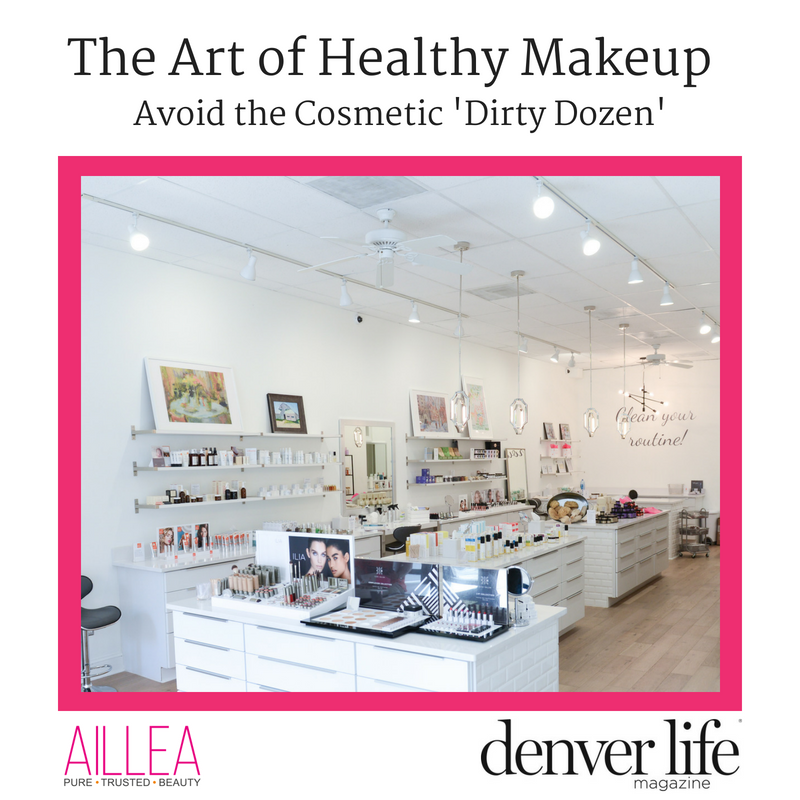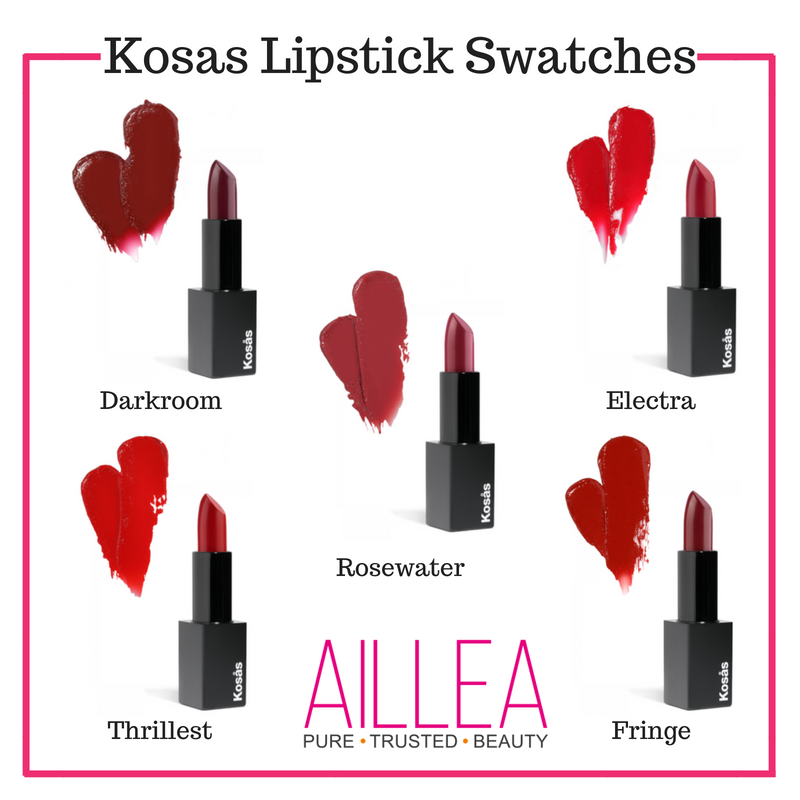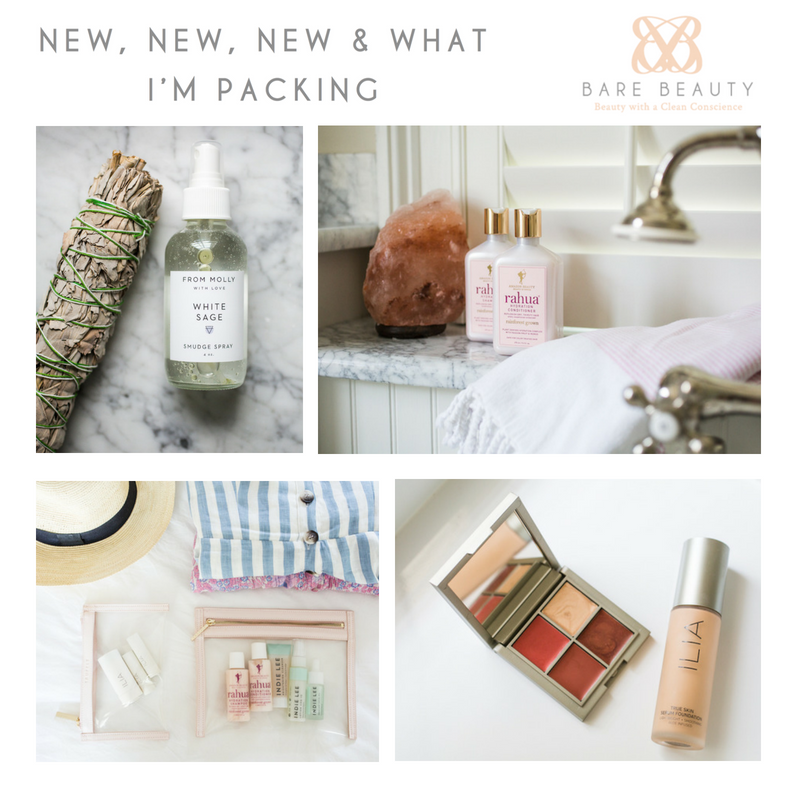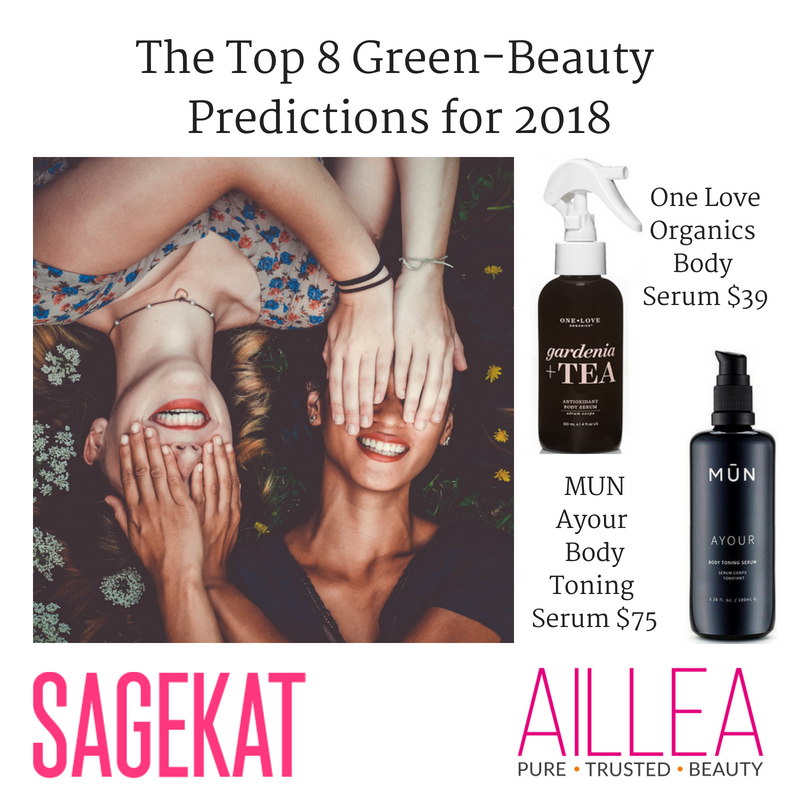
Have you ever wondered what exactly is going on your face when applying foundation or eyeshadow? Cosmetic expert and owner of beauty store AILLEA, Kathryn Murray, gives us the scoop on why we should care that our makeup is clean and healthy, and explains how to find the right products.
Our skin is our largest organ—absorbing 60% of everything we put on it—and yet toxic chemicals can be found in numerous everyday cosmetic products. The cosmetic industry has what is called the ‘dirty dozen’—the top twelve worst chemicals in makeup that you should avoid using. Included in that list are: BHA and BHT, Coal Tar Dyes, DEA-related ingredients, Dibutyl phthalate, Formaldehyde-releasing preservatives, Parabens, Parfum, PEG compounds, Petrolatum, Siloxanes, sulfates and Triclosan. Murray warns that these ingredients should not be put on the face because they are dangerous to the skin, and to overall health.
“Parabens mimic estrogen and can result in breast cancer, as well as alter your reproductive system,” Murray says. Sulfates are also extremely destructive, as they are “irritants that can be contaminated with carcinogens,” she explains.
Parabens can actually be found in 75-90 percent of all cosmetic products. And despite this chemical’s hazards, it is still considered legal to include. In fact, a mere 11 ingredients have been banned from beauty products in the U.S. In the E.U., 1,300 ingredients have been banned. This lack of screening is in part because the U.S. hasn’t passed any laws addressing harmful chemicals in personal products since 1938.
Knowing this makes foregoing wearing makeup at all a convincing argument, but Murray says high beauty standards don’t have to be compromised to avoid damaging toxins. Clean makeup that is healthy for skin is out there. And here’s how to find it: “Find brands or retailers that have a stated purpose of commitment, and whose sole mission is to provide clean beauty,” Murray advises. “Follow the experts. Researching every ingredient can be extremely time-consuming and exhausting, so find bloggers and magazines that are committed to researching clean makeup for a living.”
Be wary of greenwashing though, which happens when “cosmetic companies use fonts, imagery and a lot of words that aren’t regulated to make people believe that their product is in fact clean. It’s basically deceptive marketing,” Murray says.
If a product you haven’t had the chance to research grabs your attention, try the phone app Skin Deep by Environmental Working Group. You can check for the dirty dozen chemicals by simply scanning the barcode in the app. (Not every cosmetic product is registered in Skin Deep.)
There are brands and retailers out there that have gone to great lengths to remove harmful chemicals from their products, and Murray’s store, AILLEA, located on Larimer Square in downtown Denver, is one of those retailers. Albeit a small storefront, the walls are lined with countless products to help women feel beautiful without feeling unsafe.
“People are very concerned about the food they eat, but then are hesitant to change their makeup regimen,” observes Murray. “But if you think about how a nicotine or hormone patch works—what goes on your skin is absorbed directly in to the blood stream without a filter—this makes it as important, if not more important, to use clean products.”
CLICK HERE TO READ FULL ARTICLE




